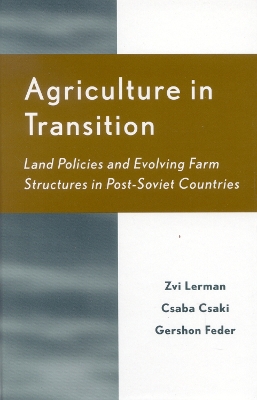Rural Economies in Transition
2 total works
In 1995-96 the President of Azerbaijan, Heydar Alieyev, launched a program of agrarian reforms that caused a sweeping and irreversible shift from Soviet-style collective agriculture to individual farming in his country. These reforms led to an impressive recovery and substantial productivity improvements in agriculture. The agrarian transition in Azerbaijan contrasts with that in Russia, Ukraine, and Kazakhstan, where land privatization has been accompanied by policies encouraging the persistence of large corporate farms and where agricultural recovery has been much less impressive. For this reason Azerbaijan is today viewed as one of the few examples of successful land reform in the former Soviet Union. The impact of the Aliyev agrarian reforms went far beyond the recovery of agricultural production. The new policies had a significant impact on rural poverty and they were instrumental in increasing the incomes of Azerbaijan's large rural population, which relies on agriculture for a substantial part of the family budget. To understand the successes and limitations of land reform, Rural Transition in Azerbaijan evaluates the record of rural reforms, focusing on policy change, farm level performance, and the impact of reforms on rural incomes and rural family well-being-issues that today are at the core of the agenda in many international organizations.
The Iron Curtain lifted in 1989, and more than twenty nations emerged from the isolation that had largely hidden them from the rest of the world for more than four decades. In each of these former Soviet States, remnants of tradition and economic organization has prevented them from stepping out, beyond the curtain and onto the world stage. Regardless, some have been extremely successful. In Agriculture in Transition: Land Policies and Evolving Farm Structures in Post Soviet Countries authors Zvi Lerman, Csaba Csaki, and Gershon Feder study the land policies and farming infastructures of these newly emerging nations as components of institutional change in the rural sector - change from a centralized rural economy to a market-oriented economy. Their analysis of the policy, tradition, history, and social structure of these developing states pushes the discussion of economic transition beyond questions policy, planning, and implementation.

